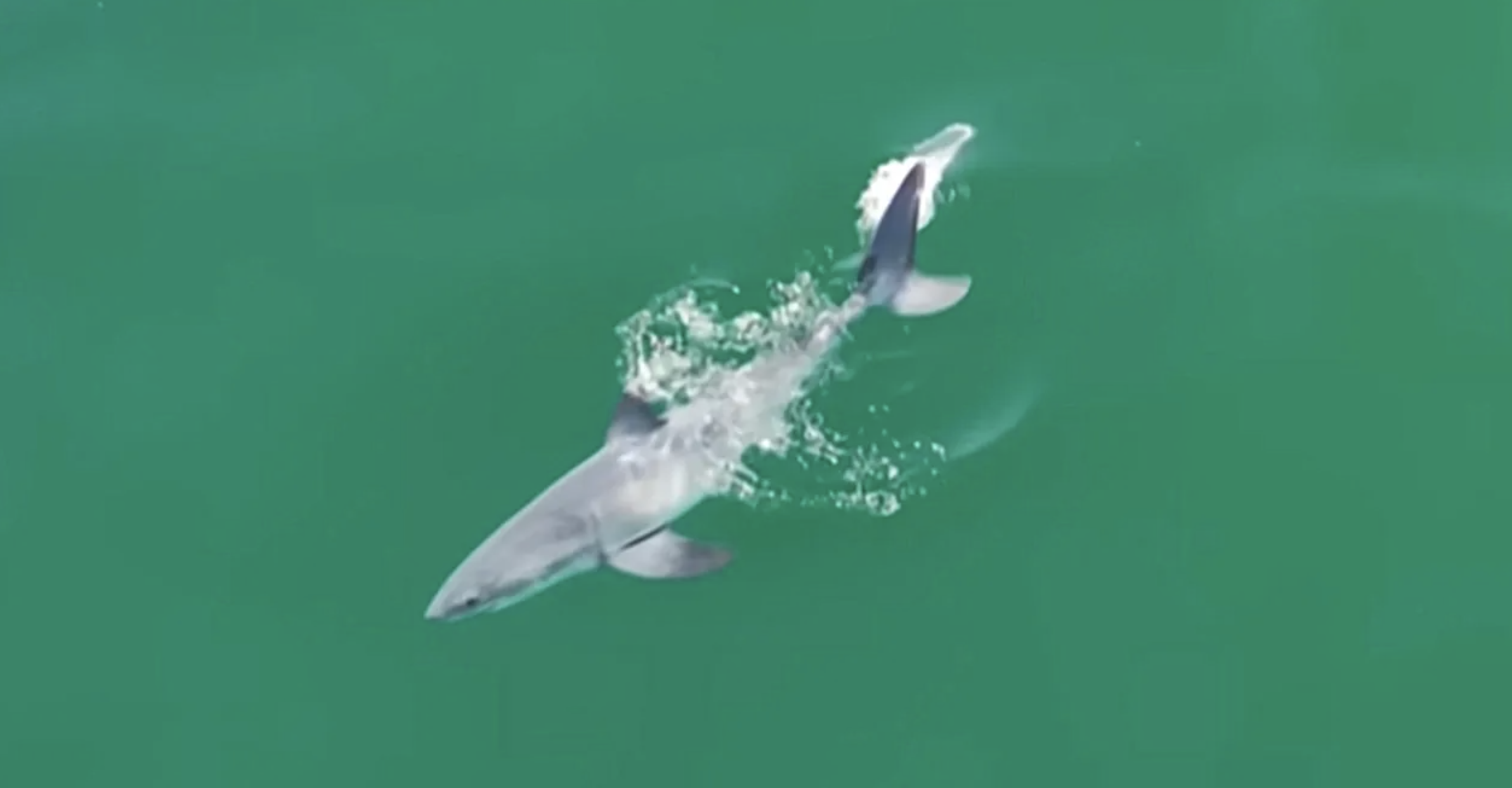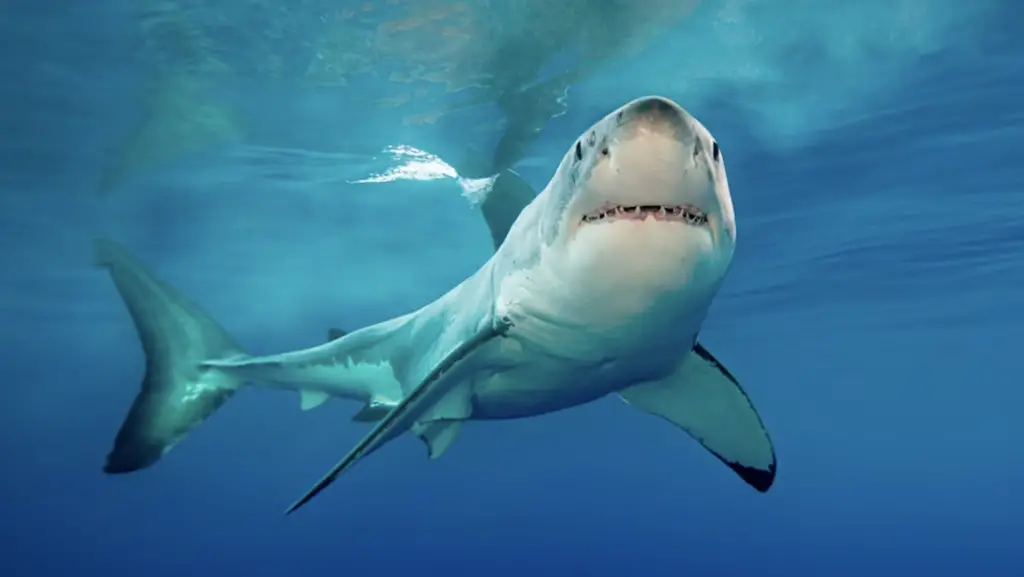
Was a baby great white shark caught on camera for the first time? Northeastern expert explains why it could be major discovery!
The first-ever sighting of what appears to be a live newborn great white shark has been captured on camera, offering marine biologists a unique opportunity to observe where the apex predator might choose to give birth.
Dan Distel, a professor specializing in marine and environmental sciences at Northeastern University, suggests that this finding has the potential to contribute to a deeper understanding of the life cycle of the great white shark. However, further investigation is required to verify the authenticity of the discovery.
The footage was obtained using a drone by Carlos Gauna, a wildlife photographer and filmmaker, during his filming expedition in Southern California last summer. Accompanying him was Phillip Sternes, a doctoral student in biology. The research documenting this discovery, authored by Gauna and Sternes, has been recently published in the scientific journal Environmental Biology of Fishes.
The great white shark holds the title of being the largest predatory fish on our planet. Despite considerable knowledge about this species, there remain significant uncertainties regarding their life cycle, particularly regarding breeding and newborns, as highlighted by the authors of the report.

There have been hypotheses suggesting that female sharks utilize the region stretching from Santa Barbara, California, to the northern area of Baja California in Mexico as birthing grounds. However, up to this point, there has been no direct observation confirming this theory, according to the pair. The shark was spotted swimming approximately 1,300 feet off the coast of Carpinteria, California, as reported by USA Today.
Although expressing some skepticism regarding the discovery, Distel emphasized that if proven to be factually accurate, it could hold significant importance in facilitating the study and conservation efforts for the species. While great white sharks are not classified as endangered, they are categorized as “vulnerable” by the International Union for Conservation of Nature due to threats such as poaching and detrimental fishing practices.
Despite the negative reputation often attributed to great white sharks by humans, Distel pointed out that globally, there are fewer than 10 human deaths caused by these sharks each year. In contrast, humans are responsible for the deaths of approximately 80 million sharks annually worldwide.



